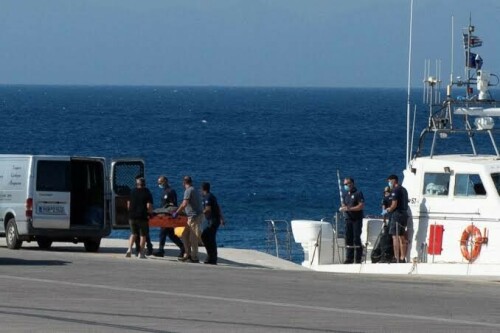ISLAMABAD, Sept 9: Pakistan’s top bureaucracy is feeling the heat of the burning problem of Balochistan more acutely as the federal government has made it mandatory for officers to serve for three years in the restive province.
Officers of the Pakistan Administrative Service (PAS) and Police Service of Pakistan (PSP) who have already served in “hard areas” appear jealous of the officers who hardly ever had to leave the comforts and safety of posh cities for the discomforts and dangers of hard postings.
Last month Establishment Division conveyed its new Rotation Policy to the chief secretaries and the inspector generals of police of the four provinces, the director general Civil Services Academy and the commandants of National Police Academy and the Frontier Constabulary, asserting that three-year service in Balochistan would be mandatory and that the criteria for all current and future postings would be on merit.
That would mean officers of Balochistan domicile who have completed three years of service outside the province may be posted back to their province of origin.
Same would apply to officers who have remained posted in the federal government, or a province not of their domicile, as well as those who have served outside their province of domicile but not served in Balochistan.
Similarly officers who have served in Balochistan but for less than three years could be sent back to complete mandatory service period.
In addition, five top PAS and PSP probationary officers will be allocated to Balochistan for their initial appointment.
Most officers, however, were surprised that PAS and PSP officers serving in safe cities, and enjoying its comforts, have been put on equal footing with those serving in hard and conflict-ridden areas of Khyber Pakhtunkhwa.
They argue that “Balochistan is not the only disturbed or troubled part of the country”.A bitter PAS officer serving in a troubled part of KP contrasted “the lifestyles of us and those who enjoy the safety and comforts of big cities”.
“We even find it risky to share with anyone our plans for field visits. There is constant risk of being abducted. We don’t move without security because we can be slaughtered on the road,” he said.
Another PAS officer, who has spent a year in Khyber Agency, informed: “We either hire taxis or switch number plates on official vehicles to avoid becoming identifiable targets.”
Theirs was no empty talk. Only two days back militants gunned down a senior police officer, Jamil Kakar, in Quetta. Officers serving at hard posts have no family life.
One of them, who had spent two years in Malakand, said most officers suffer from psychological distress as “surviving the day looked a miracle”.
After all the life in those days was lived “in the midst of bomb blasts, flying bullets and bursting rockets, military movements, bodies and the injured and displaced families,” he said.
“Violence and mayhem were as familiar as grass and sunshine and the topic to discuss day in and day out.
“At worst of the times, you could not get even clean drinking water. Despite the challenges, our resolve to serve the country was unshaken,” the officer said, speaking for his likes.
“PAS/PSP officers are not only serving but delivering - as best as possible,” he said, bitter about “being treated equal to those who were spared hot spot postings”.
They believe it would have been better for policymakers to identify “hard areas” in all provinces for compulsory postings for “all officers”.
“We need officers in Fata and KP, far-flung areas of southern Punjab as well as the poor districts of interior Sindh. These are all part of Pakistan and need good officers,” said a PSP officer who returned to Islamabad last year after completing three years in KP.
But the Establishment Division maintains that Balochistan was a province of national significance. Of the 70 vacancies there only five were occupied by officers. There were no hard areas for the civil officers and the terminology was used only in the military, according to the Establishment Division.
Secretary Establishment Taimur Azmat Osman said posting in Balochistan was not a punishment.
“The problem in Balochistan is of administration. The posts have to be filled. In a tribal setup, the locals prefer officers from the federal government who they believe are neutral,” he said, stressing that the province could neither be ignored nor deprived of competent officers.
“There are no exemptions for officers who had or are serving in other troubled parts of the country,” he asserted.











































Dear visitor, the comments section is undergoing an overhaul and will return soon.